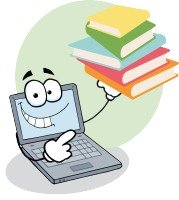A Personal Finance Homeschool Curriculum Matters
A personal finance homeschool curriculum is more than counting coins and dollars. It's about understanding how money impacts our lives and choices. Imagine if every young person understood how to budget, save, and invest. They'd step into adulthood with confidence! Teaching personal finance early can prepare kids for a lifetime of wise financial decisions. For our family, and since my partner and I have delved into property investing, we have been teaching our kids about the basics so they can also do the same and be wiser than us in this area. So, let's jump in and explore a simple homeschool curriculum for personal finance.
Sample Personal Finance Homeschool Curriculum
Kindergarten to Grade 2: Money Basics
Objective: Introduce kids to money concepts using real-life examples.
1. Understanding Money:
- Identify coins and bills.
- Learn the value of each coin and bill.
- Practice basic math with money.
2. Earning money:
- Discuss simple chores kids can do.
- Introduce the idea of an allowance.
3. Saving money:
- Introduce the concept of a piggy bank.
- Talk about saving up for something special.
Grade 3 to Grade 5: Foundations of Finance
Objective: Build on basic concepts and introduce budgeting and saving.
1. Earning and Spending:
- Discuss different ways people earn money.
- Talk about expenses and why people need money.
2. Budgeting Basics:
- Introduce the idea of a simple budget.
- Practice making a budget using examples like planning a birthday party.
3. Saving and Goals:
- Talk about long-term vs. short-term goals.
- Introduce the idea of a bank and how it can help keep money safe

Grade 6 to Grade 8: Advanced Personal Finance Concepts
Objective: Introduce kids to more complex finance topics, such as investing.
1. Budgeting in Detail:
- Dive deeper into budgeting by including categories like entertainment and education.
- Talk about the importance of tracking expenses.
2. Introduction to Investing:
- Explain what stocks and bonds are in simple terms.
- Discuss how Money can grow over time.
3. Understanding Debt:
- Talk about good debt vs. bad debt.
- Introduce the concept of interest.
Grade 9 to Grade 12: Preparing for Adulthood
Objective: Equip students with practical tools and knowledge for real-world finance.
1. Job and Career:
- Discuss different career paths and potential salaries.
- Talk about the value of education and training.
2. Advanced Investing:
- Explore topics like retirement savings and real estate investing.
- Discuss the risks and benefits of different investment choices.
3. Real World Budgeting:
- Dive into creating a detailed personal budget.
- Discuss expenses like rent, utilities, and groceries.
4. Credit and Loans:
- Talk about the importance of good credit.
- Discuss student loans, mortgages, and other common debts.
Teaching kids about money is like giving them a roadmap for life. With each grade, they'll add more details to this map. By the time they're adults, they'll know the best routes and pitfalls to avoid. Remember, while math and science are crucial, understanding money can make a real difference in a child's future. So, use this sample personal finance homeschool curriculum and equip them with these tools and watch them flourish in personal finance.
What's in our homeschool...
Finding the right homeschooling curriculum that best fits my children's needs was one of the most significant challenges I had when we first started our journey. I found different curricula that best suit my children's needs...
As a parent, a homeschooled reading curriculum was at the top of my mind when we started homeschooling. English was one of the requirements in our state, and what better way to learn English than to read. Getting kids interested...
There are various homeschool math curricula that you can use in your homeschooling. As for me, I use Mathletics and Khan Academy for my children. They are beneficial for us. I use Mathletics for our homeschool math ...
A homeschool art curriculum has a lot of benefits to children. This includes the development of language and communication skills, dexterity, motor skills, creativity, focus, persistence, problem-solving skills, collaboration...
Our homeschool science curriculum includes a few different things. Science is really a wonderful thing to be studied and explored. When we introduce our children to various opportunities for science learning, they will experience...




